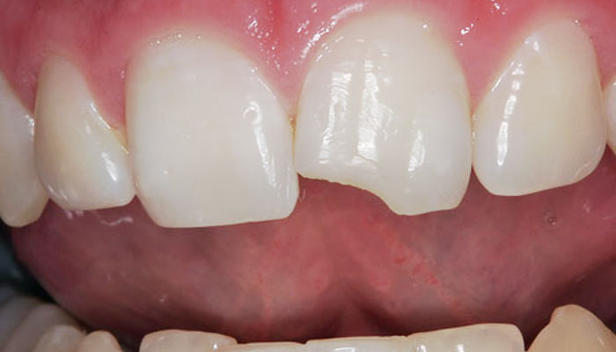Can your tooth be saved?
If the injury to your fractured or broken tooth is serious, be sure to ask your dentist in Fresno CA if your tooth can be saved before considering dental surgery to remove or extract your tooth. He or she should be able to tell you if fixing or repairing your tooth is possible, in their hands or in the hands of a dental specialist. Your dentist Dr Donan should also be able to tell you the approximate cost of replacing your tooth or teeth and how long it will take to do so. This will help you decide what to do.
Should your tooth be saved?
The answer is not always yes. Repairing or replacing broken or fractured teeth can be expensive. Unfortunately, failing to fix or replace missing teeth can be even more expensive. Still, even if you can save your tooth, there is no absolute answer as to whether or not you should save your tooth. You need to know the prognosis or the expected outcome for your broken or fractured tooth or teeth in order to answer this question. Once your dentist in Fresno CA has evaluated your situation, he or she should be able to discuss your options so you can make an informed decision as to whether saving your tooth or teeth is worth the investment.
Reasons to save broken, fractured or cracked teeth with good prognosis
Physically, our teeth are held in their position largely by the teeth around it. When a tooth is removed, the tooth or teeth above or below it and those in front or in back of it, move toward the vacant space. This shifting changes your bite and the way force is applied to your remaining teeth while you chew. You may chip, fracture or break more teeth because of the new stresses applied to your remaining teeth. When teeth lean toward vacant spaces significantly, spaces between the teeth are created where food becomes trapped and periodontal disease may begin or accelerate. Bone loss and tooth loss due to periodontal disease will follow. Multiple missing teeth can significantly affect your ability to chew food properly and thus avoid poor nutrition and digestive problems.
Socially and psychologically, missing teeth, especially multiple missing teeth, can cause people to look and feel older. When front teeth are missing people tend to smile less and find ways to hide their missing teeth. Even when the mouth is closed, the face may appear more sunken in. The lower third of the face actually becomes shorter when back teeth are no longer present and produces a noticeable change in appearance. Confidence suffers. If the impression you make upon others is important, professionally and personally, replace your missing teeth and consider incorporating cosmetic dentistry into the replacement.
What to do if you cannot save your broken tooth and it must be extracted
Single tooth replacement options include dental implants and dental bridges. If more that one tooth is missing a partial denture may provide a viable option for tooth replacement. Additional tooth replacement options may exist in certain situations. Your dentist will be able to discuss your treatment options after examining you.
What causes broken teeth, fractured teeth, cracked teeth and other dental injuries?
The most common causes of chipped teeth, broken teeth, fractured teeth, cracked teeth and dental injuries (in no particular order) are:
- Untreated dental decay
- Teeth that have undergone root canal therapy and have not received a crown
- Teeth with temporary fillings for extended periods of time (generally over a month)
- Accidents
- Assaults
- Biting or chewing unusually hard substances
- Using teeth for purposes other than chewing food
- Extremely forceful clenching or grinding of teeth
- Crooked teeth
How can you prevent injuries like tooth fractures, chipped teeth, broken teeth, cracked teeth, fractured teeth and other tooth trauma?
Have dental checkups every 6 months to discover problems early and receive treatment before decay undermines tooth structure or fillings and weaken them, predisposing them to fracture.
Have dental crowns placed on teeth that have undergone root canal therapy as soon as recommended by your dentist or endodontist. During root canal therapy the blood supply to the tooth is removed, making the tooth brittle and prone to fracture.
Have temporary fillings replaced with permanent dental fillings as soon as recommended by your dentist or endodontist. Temporary fillings wear away over time, leaving teeth unsupported, unprotected and prone to fracture.
Use appropriate protective equipment. In automobiles use seat belts, while bicycling and engaging in sporting activities wear protective athletic guards, preferably custom made athletic guards.
Avoid and remove yourself from dangerous situations where assault may occur.
Discontinue bad habits like chewing on bones and other things not meant for consumption.
Do not use your teeth to open bottles, tear open or break things.
If you clench or grind your teeth, especially at night, have your dentist fabricate a night guard for you. Normal pressure during chewing is approximately 175 p.s.i. (Pounds per Square Inch.) During sleep you may generate 300 p.s.i. or more as there is no food to absorb the impact and your protective reflexes are not at work.
Properly aligned teeth are much less likely to fracture or absorb a great amount of individual force. Teeth that are positioned in a more forward position than the rest of the teeth are at risk of fracture because they are the first objects contacted during impact. Seek orthodontic treatment using traditional braces or Invisalign clear braces.


